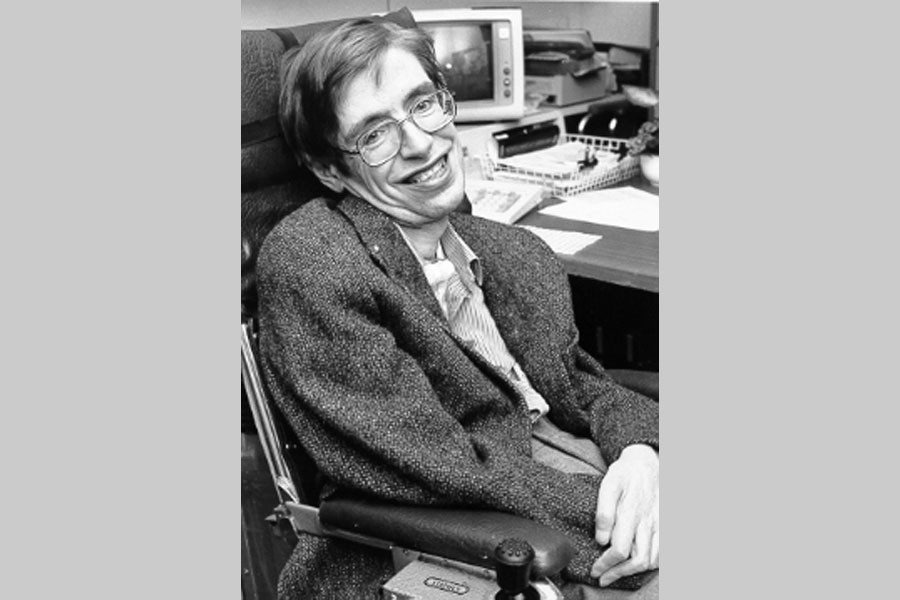
Published :
Updated :

With the death of Stephen William Hawking, the greatest scientific and philosophical mind of the later part of the 20th century and the new millennium has taken leave of this world. He surely was the most influential scientist after Albert Einstein on whose theory of relativity he developed his own understanding of the universe. In his search for the origin and end of the universe, he came up with a theory of cosmology as a union of relativity and quantum mechanism. His was a mission to find a connection between gravitational force maintaining the rotational balance of terrestrial objects and subatomic particles. Working in close cooperation with mathematician Roger Penrose, Hawking could identify the relation between space and time. In other words, matters come to being in the process and end up in black holes or dark matters. This may explain the creation of the universe. His concept of 'real time' and 'imaginary time' almost provides a glimpse into what can roughly be called time travel.
That he was a scientist one of his kind is universally accepted. But credit also goes to him for explaining the most complicated scientific subjects so simply and lucidly. It is because of this he can claim that science is so beautiful when it makes simple explanations of phenomena or connections between varying observations. Again, facts, to him, are beautiful enough without the 'fairy tales'. To people who know that the scientist was given to live a short life on account of a rare form of motor neurone disease he suffered from, his death at the age of 76 is certainly not untimely. But the wheelchair-bound physically handicapped man may look like an enigma considering the mental prowess he has demonstrated. He will be inspiring people with physical impairment the world over to live a more resourceful and fuller life than they aspire for.
If the scientific achievements of Stephen Hawking transcend the boundary of common people's intelligence, his spirit as a human being is no less fascinating. Logic and reasoning were his forte. Here is a man who wants to make use of every single moment for understanding the meaning of life and its relation with the universe. That he loved this world and people on it is clear from his famous saying, "It would not be much of a universe if it was not home to the people you love".
Stephen Hawking's death has left a void that is unlikely to be filled ever, for men like him are born in millennia. One wonders if he was not physically constrained, how greatly he would have contributed to the cause of mankind. The world will remain grateful to the man for what he has done to advance the human civilisation single-handedly. His concern for mankind's welfare is well explained by the fact that he campaigned against global warming and even suggested building colonies on other planets in order to save the species. Let his legacy live on to inspire scientists to carry forward his vision and mission.


 For all latest news, follow The Financial Express Google News channel.
For all latest news, follow The Financial Express Google News channel.